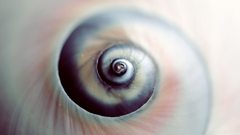"Foolishness is not a bad way to change the world." - Rev Professor David Wilkinson
Thought for the Day
Good morning. As we have been hearing, the monster Cyclone Pam has devastated the islands of Vanuatu. President Lonsdale has appealed for a helping hand, and I'm so pleased that Britain, along with a number of others, has responded by pledging up to two million pounds in aid.
The Vanuatu disaster came at the end of a week in which Parliament passed a bill which made the aid spend of naught point seven percent of gross national product a legal requirement and became the first G7 country to meet the UN's 45-year-old target. Despite arguments for such aid contributing to stability and security, some opponents have called it absurd and foolish, not least in the light of needs at home.
A different kind of foolishness was on display on Friday when Comic Relief raised a record seventy eight million pounds to take its thirty year total to one billion. As Billy Connolly said, 'All the silly nonsense of Red Nose Day is about the serious business of helping people change their lives'. It's a remarkable achievement to raise money out of Dermot O'Leary's dancing and David Walliams' kissing - and a remarkable testimony to the generosity of the British people.
When it comes to asking for a helping hand, you can preach it as a moral imperative or you can celebrate a common humanity through a combination of stories of need and shared laughter. Indeed, foolishness is not a bad way to change the world. In his recent book, 'Blueprint for Revolution: How to Use Rice Pudding, Lego Men and Other Non-Violent Techniques to Galvanise Communities, Overthrow Dictators or Simply Change the World', Srdja Popovic one of the founders of the Otpor movement which played a key part in seeing off Milosevic in Serbia, argues that change happens as a result of careful planning, enthusiasm and importantly humour. The foolish and the absurd can subvert the status quo and give a different picture of the world.
This was in fact part of the ministry of Jesus. He used the image of a camel trying to squeeze itself through the eye of a needle to subvert the assumption that the rich could easily get into the Kingdom of God. At a deeper level, God's non-violent self-giving love embodied in the life and death of Jesus can be dismissed as foolish but I and others see it at the very heart of being fully human.
In 2006 Vanuatu was classified as the happiest place on earth, not least because of the welcome, hospitality and care for the outsider, despite the poverty of its people. Perhaps as we give so we can learn.
First Broadcast 16 March 2015
Duration:
This clip is from
More clips from Thought for the Day
-
![]()
Rhidian Brook - 06/11/2025
Duration: 03:02
-
![]()
Jasvir Singh, CBE - 05/11/2025
Duration: 02:47
-
![]()
Rev Dr Sam Wells - 04/11/2025
Duration: 02:52
-
![]()
Chine McDonald - 03/11/2025
Duration: 03:16






